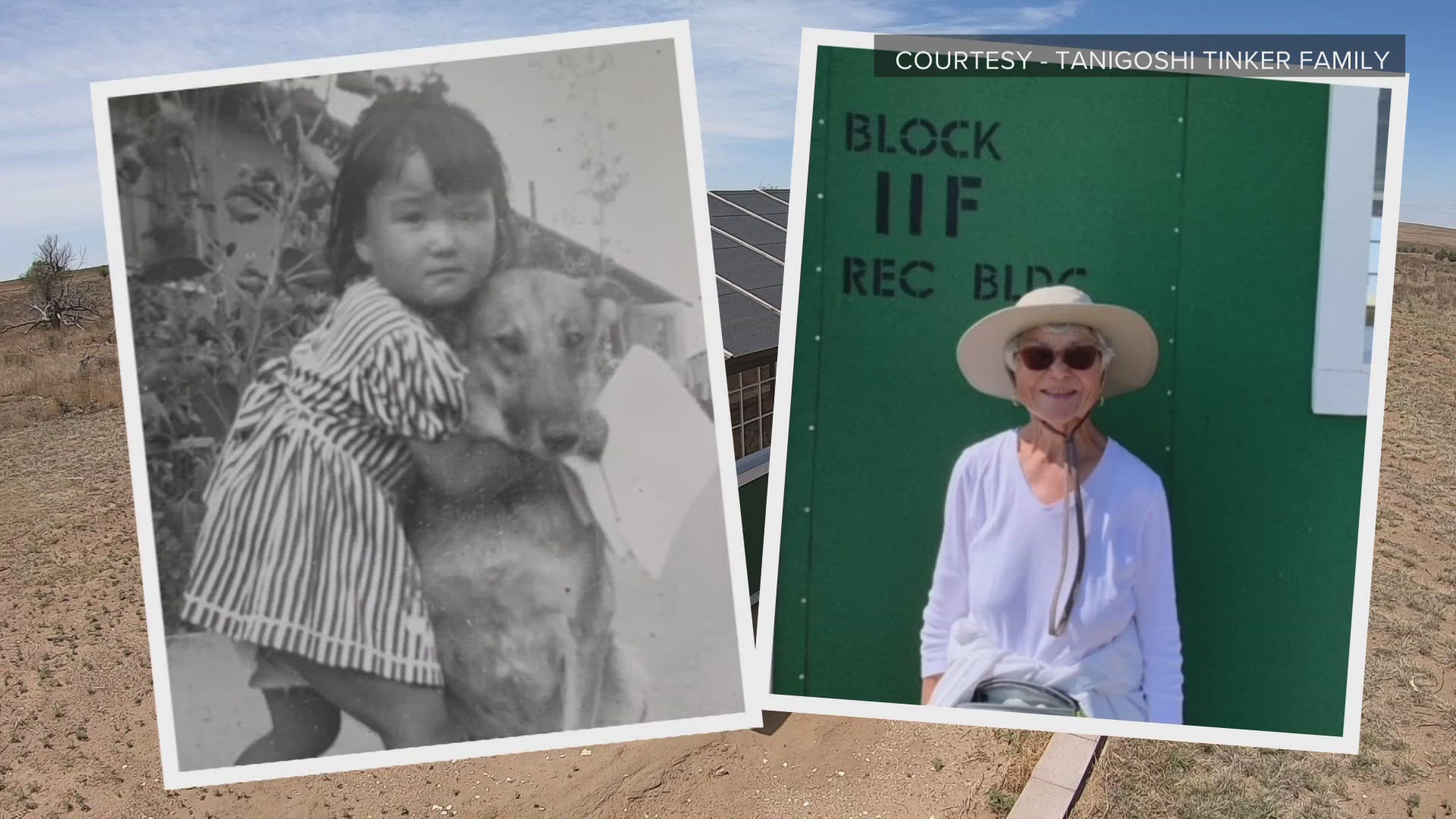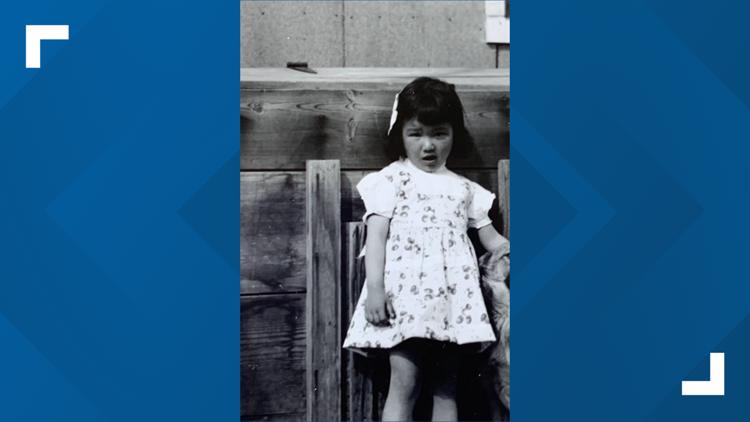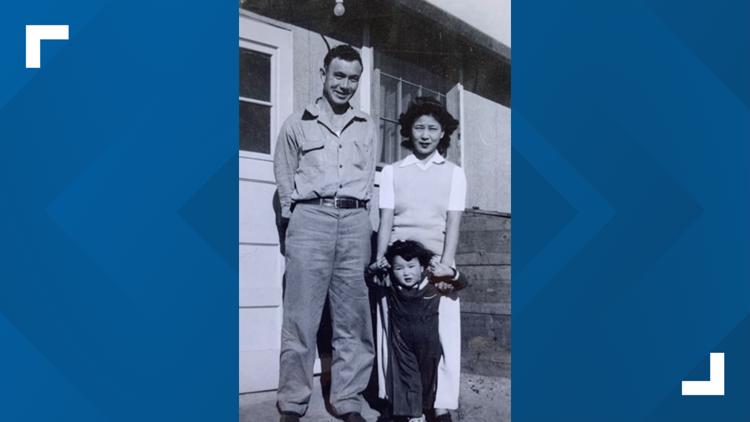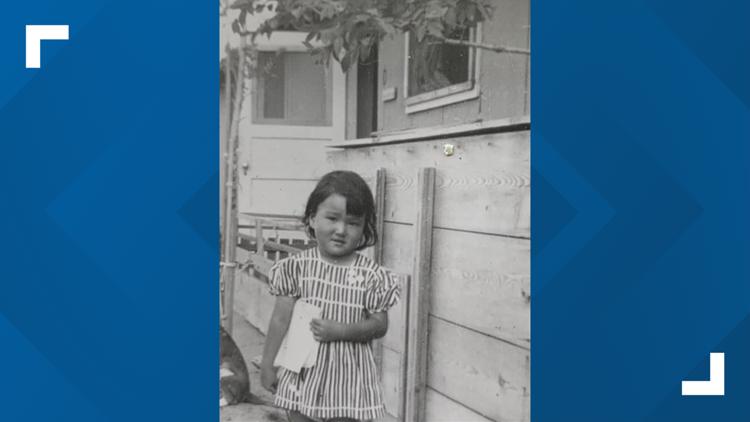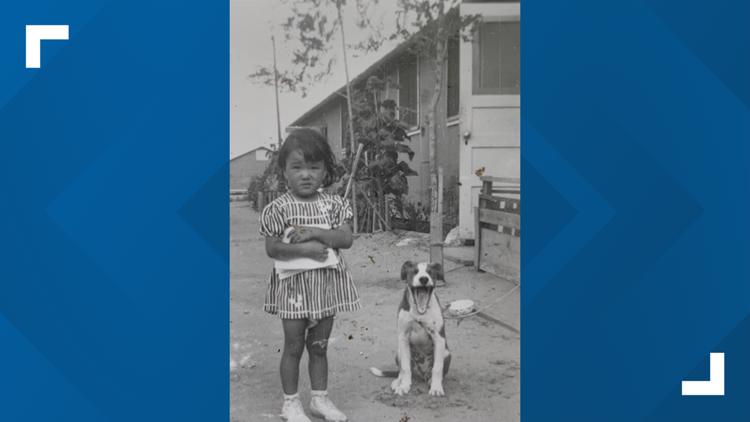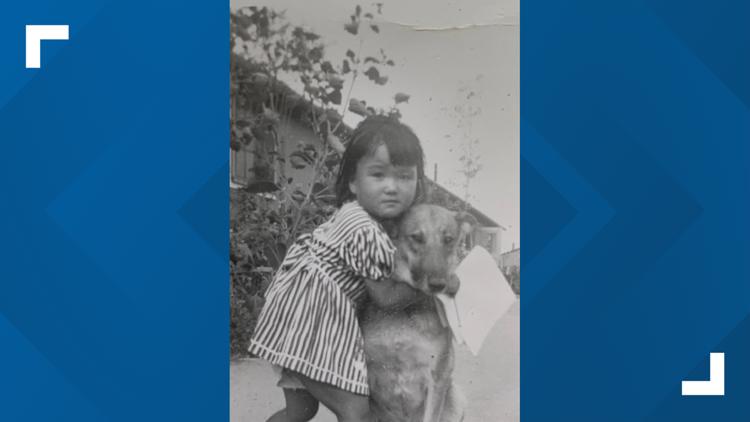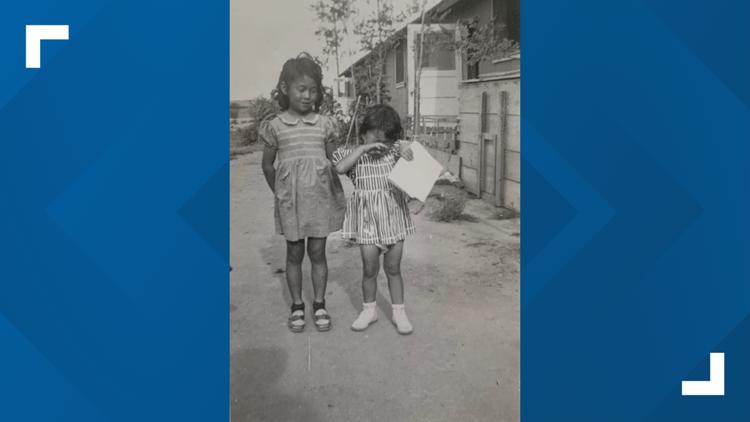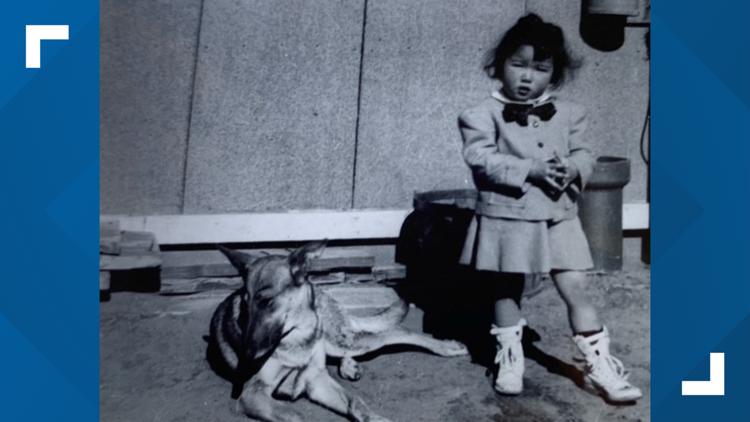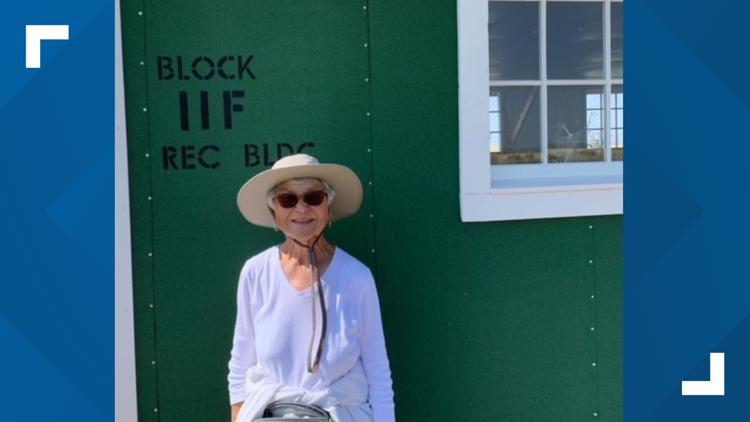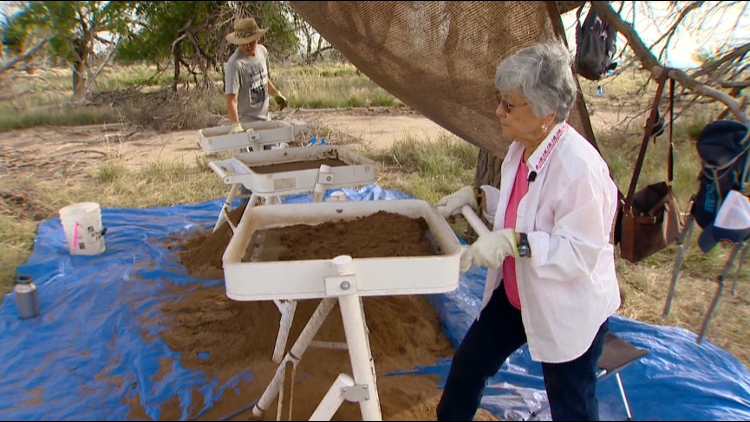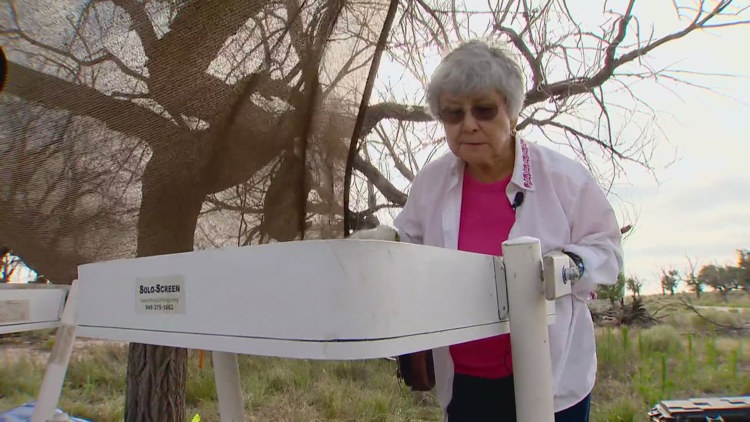GRANADA, Colo. — Each year, survivors and their families make an annual pilgrimage to Amache. It's the incarceration camp where 7,300 Japanese-Americans were unjustly imprisoned during World War II.
For some, decades passed before they revisited the place that caused them so much pain.
"I was born in 1939, two years before Pearl Harbor," said Carlene Tanigoshi Tinker. "Shortly after that, FDR signed the executive order to send us away."
Wounds more than 80 years old can still run deep. She was just 3 years old when she was forced to leave her home in Los Angeles and was unjustly imprisoned in Colorado's southeastern plains.
"I didn't dwell on that," Tanigoshi Tinker said. "It's never been on-the-surface kind of thing, but just recently I'm thinking you know, that was hurtful. That did affect me."
Amache survivor shares photos from her childhood
She said it's all about the power of place.
"When I went inside, I could actually see where I laid my blanket, my blankie," she said.
Being in Amache again for the first time, decades after she left, opened up her memory.

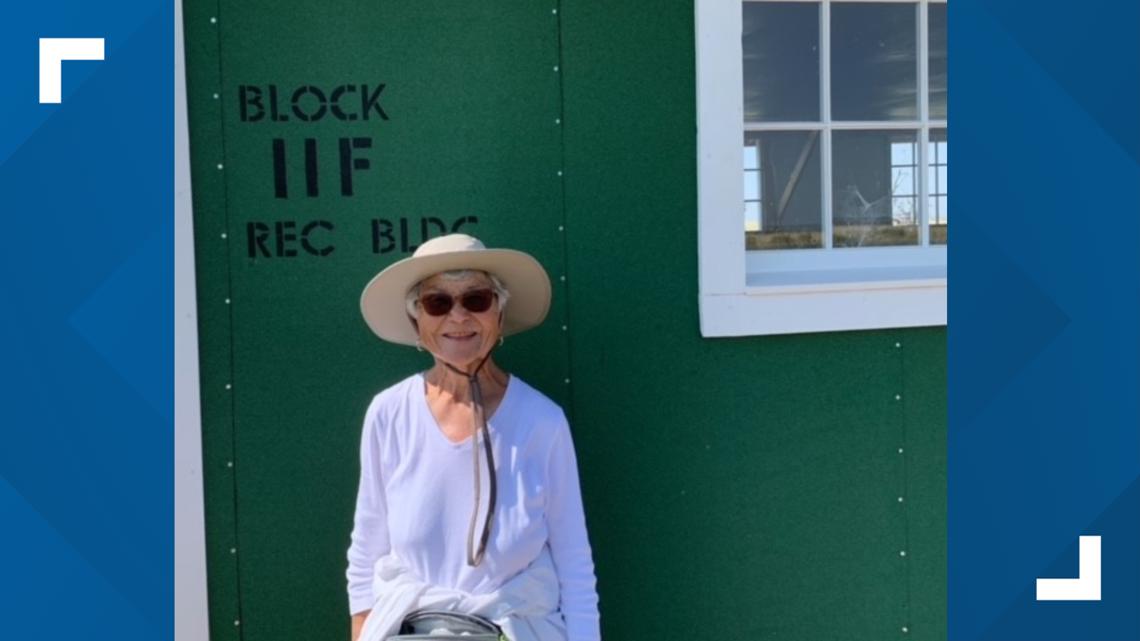
"My dad, very solicitous, dust storms all the time, so when we got ready to go to the mess hall, he would put me on his shoulders, cover my face with a scarf, and we'd walk over," Tanigoshi Tinker said.
Seeing the reconstructed barracks, stories from her childhood came rushing back.
"It was the story of disenfranchised people, people who were denied their constitutional rights," she said.
Since 2010, she has volunteered with the University of Denver Amache Research Project, helping to excavate and preserve artifacts.
It encouraged her to research and revisit her past, uncovering items like her preschool report card.
"'She plays well, but you know Carlene uses double negatives,' and I thought, 'Well, wait a minute, give me a break, I'm only 3 years old!'" she said.

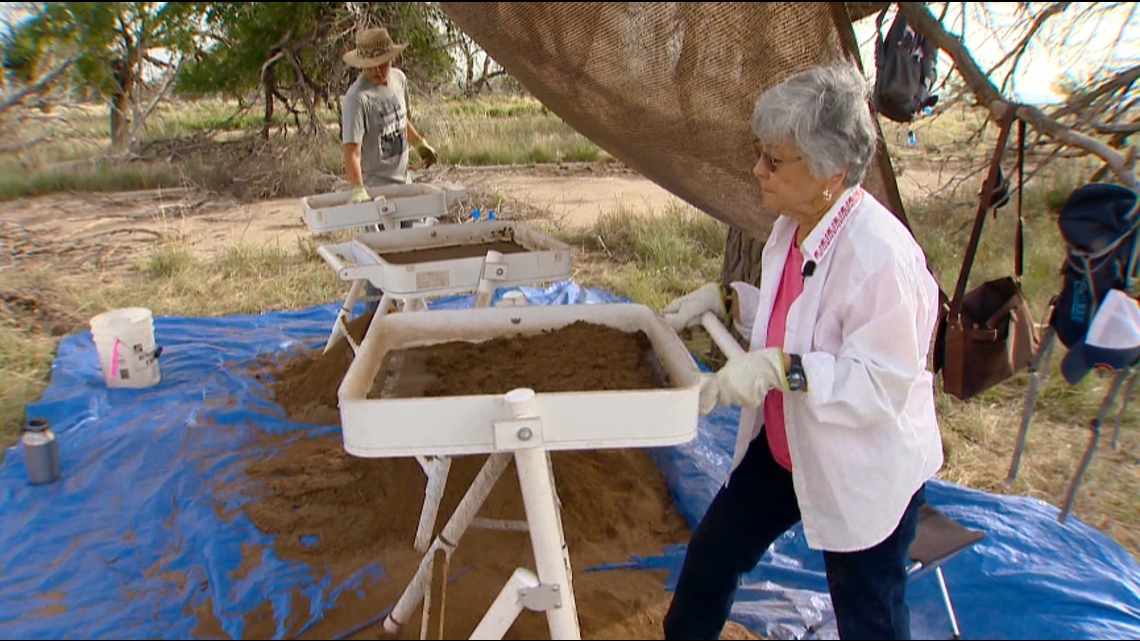
As she uncovered more about her life, it made her reflect on the suffering she and so many others endured.
"Why do I always defer to other people, and I'm thinking, it's because I had some of these bad experiences where people rejected me," she said. "We shouldn't do this to other people. You hear other people coming in, they want to put them in camps."
Now, her healing journey continues.
"That's why it was so important that Amache become a national park in the first place," she said.
It was all in the hope that her story, Amache's story, will one day prevent another tragedy.
"It finally became a whole thing, a whole story, something that would be perpetuated forever. Our stories would not be lost," she said.
If you'd like a guided tour of Amache or to visit the museum, you can make a reservation by calling the Amache Preservation Society at: 719-734-5492 or by email at amache@usa.com.
SUGGESTED VIDEOS: Colorado’s History

